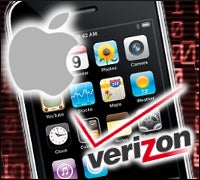 |
Will Verizon ever get the iPhone?
It’s not likely to happen soon, and the reason doesn’t have anything to do with negative ads, mysterious contract expirations or even the competition, says one analyst. Rather, it has everything to do with Apple’s corporate philosophy and Verizon’s execution of Long Term Evolution (LTE).
Industry watchers are once again weighing in on what might happen when the exclusive deal between AT&T (NYSE: T) and Apple (NASDAQ: AAPL) expires and if Verizon will ever get the iconic handset after the issue surfaced during both of the carrier’s respective earnings calls.
Apple and AT&T recorded yet another stellar quarter, with the nation’s second-largest network reporting that 40 percent of its record-breaking 3.2 million iPhone activations were new subscribers, a batch of stats most carriers would covet.
Verizon CEO Ivan Seidenberg said during the call “We obviously would be interested at any point in the future that they would be interested in having us as a partner,” despite a campaign of ads critical of the iPhone and AT&T.
Four days earlier, AT&T’s Ralph de la Vega, head of mobile, mused about how the carrier is still positioned to be competitive even without being the sole iPhone carrier.
Meanwhile, no one knows exactly when the contract expires, as Apple and AT&T did not disclose details of the deal, though there’s widespread speculation that it could be some time next year.
Can’t or won’t do it?
The contract, however, doesn’t really matter in the big picture, said Avi Greengart, analyst at Current Analysis, in a research note titled “When Will Verizon Get the iPhone?”
Given that there’s no single wireless technical standard, every carrier in the U.S. uses a mix of different technologies. AT&T operates a GSM/HSPA
The two standards aren’t compatible, and as other analysts have pointed out, the iPhone is designed for GSM/HSPA and simply won’t work on Verizon’s infrastructure without a new cellular radio.
Greengart, however, notes that “It is not that Apple can’t build a CDMA version of the iPhone, it just chooses not to,” he said.
While Apple certainly has the money, muscle and know-how to create a phone that has multiple radios to talk to whatever network it wants to use, as HTC and Research In Motion do, Apple is not likely to re-engineer the iPhone to work on CDMA for the short-term gains this would give the company.
“That would not fit with Apple’s product development philosophy. Instead of building out different hardware platforms, Apple would rather stick with just one and put R&D into improving the software,” said Greengart.
“Sometimes Apple’s design decisions are based on maintaining premium margins, sometimes they are based on aesthetics, and sometimes they are more about adhering to a specific product development philosophy,” he said. “Apple makes these decisions even if it means giving up some money in the short term.”
It also helps that AT&T’s GSM technology is used broadly worldwide, which benefits Apple’s business model, while Verizon’s CDMA protocol is used primarily in North America and South Korea, says the report.
Down the road
Meanwhile, all the major carriers have long-term plans for future-generation standards, which complicate the iPhone-on-Verizon equation even more.
Verizon is placing its future on LTE
“If Apple is unlikely to build a CDMA iPhone, it is exceedingly unlikely to build a CDMA/LTE version,” reasons Greengart.
Verizon isn’t alone in the move to LTE, however, as AT&T is also switching over.
Eventually, when an LTE iPhone debuts in the future, it will be unlocked, and therefore would work on Verizon’s LTE network, says the report. “It is worth noting that the 700 MHz spectrum Verizon Wireless is using for its LTE network was purchased with open access requirements built-in; in other words, the carrier will not be able to lock LTE devices to its network. Therefore, the question now hinges on when Verizon Wireless will have its LTE network up and running,” said Greengart.
Though LTE rollout begins next year, he doesn’t see the completion for Verizon until 2013 at the earliest.
“Then, you should be able to buy an LTE iPhone that will work on either AT&T or Verizon Wireless,” said Greengart, “but not Sprint.”


